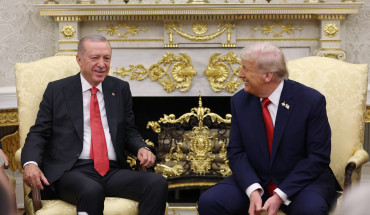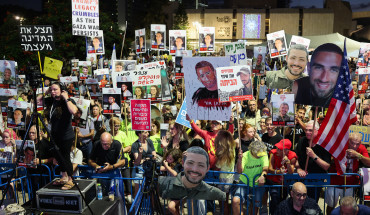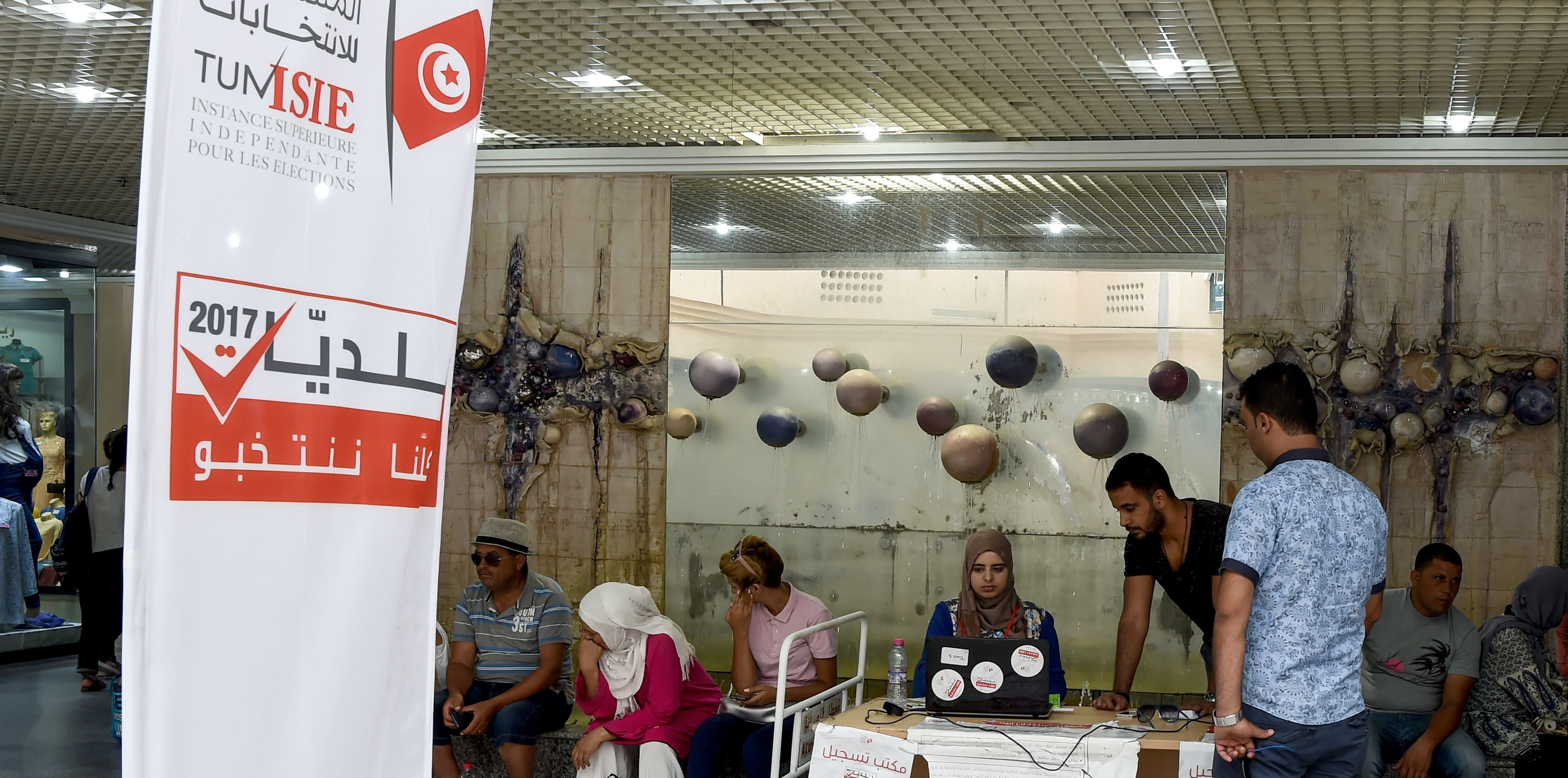Leading up to long-awaited municipal elections, Tunisia is at a crossroads. The beginning of 2018 saw widespread protests and social unrest in both cities and rural areas, as economic stagnation and unemployment continue to worsen. However, the vote currently set for May 6 signals an opportunity for Tunisian youth, women, and minorities to make their voices heard.
How might the elections encourage confidence among Tunisians in a transparent democratic process? Could the results promote or undermine Tunisia’s fragile stability? How can the international community better support Tunisia and its government to address the rising social tensions?
The Middle East Institute (MEI) is pleased to host Ambassador Fayçal Gouia, ambassador of Tunisia to the United States, Elie Abouaoun (USIP), and Sabina Henneberg (SAID) for a panel discussion to examine Tunisia’s political challenges -- both local and national -- ahead of the elections. MEI’s senior vice president for policy research and programs, Paul Salem, will moderate the discussion.
Speaker biographies:
Ambassador Fayçal Gouia
Ambassador of the Republic of Tunisia to the United States
H.E. Fayçal Gouia, a longtime high-ranking member of Tunisia’s Foreign Service, is Tunisia’s ambassador to the United States. He has served in several posts in Tunisia including at the ministry of finance and ministry of foreign affairs. Ambassador Gouia’s assignments to the Tunisian embassy in Washington include cultural and press counselor, economic and commercial counselor, and deputy chief of mission. He returned to Tunis in 2001 to head the Americas department in the Ministry of Foreign Affairs. Ambassador Gouia received his first ambassadorial assignment beginning in 2006 in Jakarta, Indonesia. In 2010 he became director general for Africa and the African union and in 2011 he was appointed director general for the Americas and Asia in the ministry of foreign affairs. In January 2014, he was named secretary of State for foreign affairs. Ambassador Gouia taught international relations at the diplomatic institute for training and studies of Tunis and at the high institute of human sciences, university of Tunis. He is Chevalier of the republic order and was granted the distinguished alumni award of the Near East South Asia Center for Strategic Studies at the National Defense University in 2013.
Elie Abouaoun
Director, Middle East and North Africa Programs, United States Institute of Peace
Elie Abouaoun is currently the director of the Middle East & North Africa Programs at the U.S. Institute of Peace. He has served as director of Middle East Programs and senior program officer since 2013. Prior to that, he held the position of executive director at the Arab Human Rights Fund. His previous positions include acting country director and program manager for the Danish Refugee Council in Iraq, as well as program coordinator for Ockenden International-Iraq and director of external relations for the Lebanese NGO arcenciel. Abouaoun has served as a senior trainer and consultant for various international organizations since 1996 including for the Council of Europe since 2000. In 2001 he was appointed a member of the Reference Group established by the Directorate of Education-Council of Europe to supervise the drafting of COMPASS, a manual for human rights education. He further supervised the adaptation and the translation of COMPASS into Arabic, and its subsequent diffusion in the Arab region in 2003.
Sabina Henneberg
PhD candidate, Johns Hopkins University School for Advanced International Studies (SAIS)
Sabina Henneberg received her Ph.D. and M.A. in International Relations from the Johns Hopkins University School for Advanced International Studies (SAIS), where she was a David A. Boren National Security Fellow and a recipient of the 2015 Cosmos scholarship. She received a B.A. in international political economy from Colorado College. Dr. Henneberg’s doctoral dissertation focused on understanding how pre-existing conditions and agents’ choices shaped the first interim governments in Tunisia and Libya following the 2011 Arab Uprisings. She is currently continuing to research and publish on issues relating to political transitions in North Africa as a visiting scholar at SAIS. Dr. Henneberg has worked in Africa and the Middle East on international education and civil society development for Creative Associates International, a USAID implementing partner, and with other organizations on human rights and gender issues. She also taught English for two years at Nankai University in Tianjin, China.
Paul Salem
Senior vice president for policy research and programs, MEI
Paul Salem is senior vice president for policy research and programs at The Middle East Institute. He focuses on issues of political change, transition, and conflict as well as the regional and international relations of the Middle East. He has a particular emphasis on the countries of the Levant and Egypt. Salem writes regularly in the Arab and Western press and has been published in numerous journals and newspapers. Salem is the author and editor of a number of books and reports including From Chaos to Cooperation: Toward Regional Order in the Middle East (ed. with Ross Harrison, 2017), Broken Orders: The Causes and Consequences of the Arab Uprisings (In Arabic, 2013), “The Recurring Rise and Fall of Political Islam” (CSIS, 2015), “The Middle East in 2015 and Beyond: Trends and Drivers” (MEI 2014), Bitter Legacy: Ideology and Politics in the Arab World (1994), Conflict Resolution in the Arab World (ed., 1997). Prior to joining MEI, Salem was the founding director of the Carnegie Middle East Center in Beirut, Lebanon between 2006 and 2013. From 1999 to 2006, he was director of the Fares Foundation and in 1989-1999 founded and directed the Lebanese Center for Policy Studies, Lebanon's leading public policy think tank.












